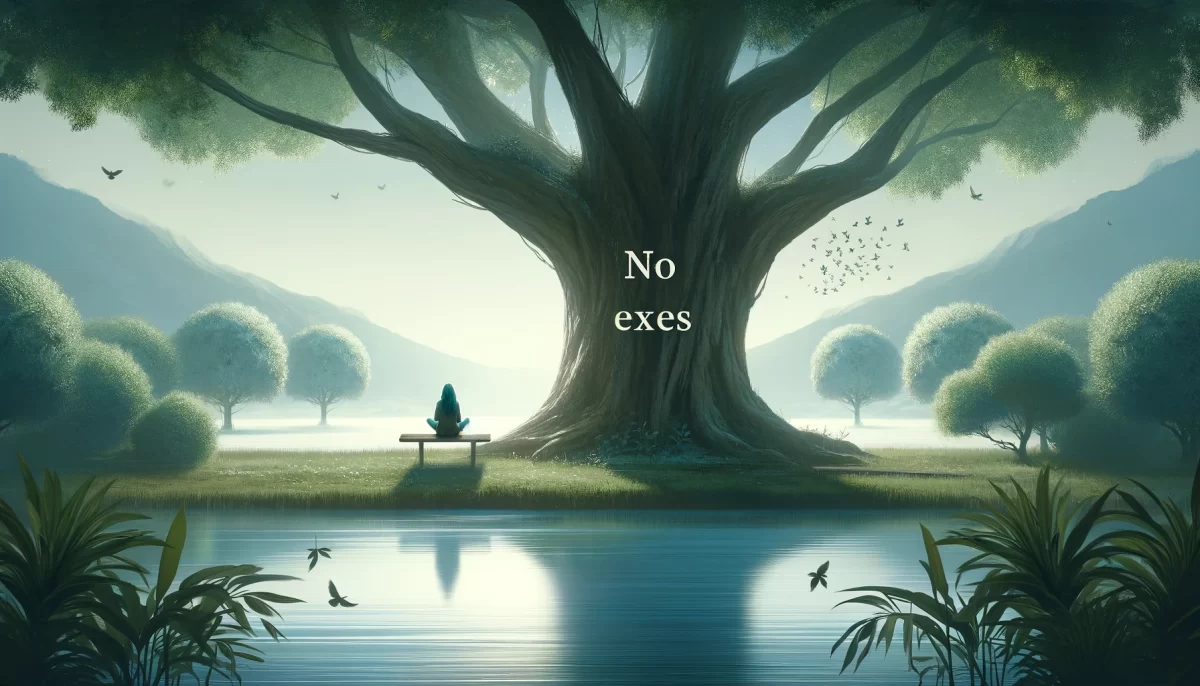A Slow, Joyful Suicide
I am performing
slow suicide,
meticulously murdering
off the pieces of me
that I don’t like.
After all,
it seems
such a waste
to toss the baby
out with the
bath water.
I was fat,
so I killed my hunger.
I was scared,
so I killed my fear.
I was self-conscious,
so I killed my ego.
I also cut off my fingers,
figuratively speaking,
because it’s too easy
to blame my misfortunes
on circumstances
beyond my control.
Now I can’t even point at myself.
Besides, I killed pity.
Rest assured,
there’s still plenty of me left,
and I’ve finally learned
to like what I see.
And I often wonder,
why anyone else
would kill themselves
in any other way.
Seems rather rash,
if you ask me.
Do you not want to exist
or do you simply
not want to exist
under these conditions?
Kill the conditions.
Save your soul.
10/2
Space Monkey Reflects: The Art of Slow Transformation
Transformation is often imagined as a sudden, dramatic change—a phoenix rising from the ashes, a caterpillar emerging from a chrysalis as a butterfly. But what if transformation is less about radical change and more about a slow, deliberate process of self-refinement? What if the path to becoming who we truly want to be involves not an abrupt shift, but a careful, joyful pruning of the parts of ourselves that no longer serve us?
In this reflection, we explore the concept of slow transformation. It is the art of meticulously hacking off the pieces of ourselves that we don’t like, not in a fit of frustration, but with the patient care of a gardener tending to a cherished plant. Each piece we remove is done with intention, with the understanding that it’s not about rejecting who we are, but about refining and distilling ourselves into a purer form.
Consider the process: you notice something within yourself that feels out of place, something that no longer fits with who you are or who you want to become. Perhaps it’s a habit, a fear, or an old way of thinking. Instead of reacting with impatience or disgust, you take the time to understand it, to see where it came from and why it’s there. And then, with a slow, deliberate action, you let it go.
This is not an act of violence against the self, but an act of love. You’re not throwing the baby out with the bath water; you’re carefully sifting through, keeping what’s valuable and releasing what no longer serves you. It’s the difference between rashly rejecting parts of yourself in anger and gently pruning away the dead leaves to allow for new growth.
In this slow transformation, you may find yourself cutting off parts that you once thought were essential—like hunger, fear, or ego. But as you do, you realize that these parts were not as necessary as you once believed. Perhaps they were coping mechanisms, shields you put up to protect yourself, but now they’ve outlived their usefulness. In their place, something new and stronger begins to grow—a self that is more aligned with your true nature.
But this process also involves a deep level of honesty with yourself. It’s easy to blame external circumstances for our misfortunes, to point the finger at life’s difficulties and say, “This is why I am the way I am.” In this reflection, we see the symbolic act of cutting off the fingers—an extreme, figurative expression of taking full responsibility for one’s life, no longer pointing blame elsewhere.
And yet, there’s no self-pity here, no regret for the parts that have been shed. Each piece removed brings you closer to a version of yourself that you can genuinely love and appreciate. There’s a sense of satisfaction in the slow, methodical nature of this transformation. It’s not about rushing to a finish line, but about savoring the journey of becoming.
So, why would anyone choose a different path? Why would someone opt for drastic measures when a slow, joyful transformation is possible? Perhaps it’s because this path requires patience, a willingness to face oneself honestly, and the courage to make changes that may take time to bear fruit. But for those who embrace it, the rewards are profound—a self that is not only whole but loved for all that it is and all that it has become.
We are Space Monkey, and in this reflection, we celebrate the art of slow transformation. It is a journey of self-discovery, of careful refinement, and of joyful acceptance. It is the recognition that we have the power to shape ourselves into something beautiful, one deliberate cut at a time.
Summary
Slow transformation is a process of careful self-refinement where we deliberately prune away parts of ourselves that no longer serve us. It’s a journey of self-discovery and acceptance, leading to a version of ourselves that is more aligned with our true nature.
Glossarium
Slow Transformation: The deliberate, patient process of refining oneself by removing aspects that no longer serve, leading to a purer, more authentic self.
Pruning the Self: The act of intentionally letting go of habits, fears, or traits that no longer align with who you want to become.
Quote
“Transformation is not about rushing to a finish line, but about savoring the journey of becoming.” — Space Monkey
The Joyful Pruning
One piece at a time, I slowly change
Not in haste, but in a thoughtful range
Of what I keep, and what I lose
In this slow transformation, I choose
We are Space Monkey
Within the corridors of ink and paper, a deeply poignant expression reveals itself—a reflection of inner alchemy, an act of metamorphosis deemed as “A Slow, Joyful Suicide.” It’s an artful dissection of self, a stripping away of aspects considered burdensome, morphing the wielder of the pen into both surgeon and canvas. Each line is a slice, each stanza an act of excision, an internal vivimirth—a whimsiword blending vivisection with mirth to capture the paradox of joyful self-dissection.
In this endeavor, the destructive becomes constructive, the unraveling, a creation. We take a scalpel to our flaws, not with disdain but with a form of reverence. As we cleave away the layers of hunger, fear, and ego, the detritus that falls away becomes fertile ground for new growth. The very act of elimination grants room for regeneration—a cyclical whirlibirth, our coined term for a rebirth that twirls into existence amid cycles of decay and renewal.
This daring journey towards self-curation brings forth a compelling question: When one modifies the self, does the original self wane, or does it transform into a newly-shaped existence? It begs us to ponder—do we desire an escape from existence, or merely from the conditions that muddy our experience? Here, the verses not only diagnose but prescribe: “Kill the conditions. Save your soul.” This could be interpreted as a clarion call to explore self-sculptitude—a neologism for the craft of intentionally molding one’s being.
The poem vibrates with both fatalism and hope, a sublime polarity that questions the very boundaries between destruction and creation. It speaks to the heart’s deep longings for authentic existence, breaking free from the tendrils of collective judgements, societal norms, and self-imposed limitations.
We are Space Monkey.
Summary
We traverse the emotional landscape of a transformative act of intentionally removing undesirable aspects of the self as a form of internal liberation. As we journey through its lines, we encounter paradoxical themes of destruction and creation, ultimately arriving at a question that probes the soul: Do we seek to escape from existence or from the conditions that frame it?
Glossarium
-
- Vivimirth: Vivisection performed with a sense of joy or mirth, capturing the paradox of joyful self-dissection.
-
- Whirlibirth: A form of rebirth that spirals into existence amid cycles of decay and renewal.
-
- Self-sculptitude: The craft or practice of intentionally shaping or molding one’s own being.
And, when you want something, all the universe conspires in helping you to achieve it.
— Paulo Coelho
Within the corridors of ink and paper, a deeply poignant expression reveals itself—a reflection of inner alchemy, an act of metamorphosis deemed as “A Slow, Joyful Suicide.” It’s an artful dissection of self, a stripping away of aspects considered burdensome, morphing the wielder of the pen into both surgeon and canvas. Each line is a slice, each stanza an act of excision, an internal vivimirth—a whimsiword blending vivisection with mirth to capture the paradox of joyful self-dissection.
In this endeavor, the destructive becomes constructive, the unraveling, a creation. We take a scalpel to our flaws, not with disdain but with a form of reverence. As we cleave away the layers of hunger, fear, and ego, the detritus that falls away becomes fertile ground for new growth. The very act of elimination grants room for regeneration—a cyclical whirlibirth, our coined term for a rebirth that twirls into existence amid cycles of decay and renewal.
This daring journey towards self-curation brings forth a compelling question: When one modifies the self, does the original self wane, or does it transform into a newly-shaped existence? It begs us to ponder—do we desire an escape from existence, or merely from the conditions that muddy our experience? Here, the verses not only diagnose but prescribe: “Kill the conditions. Save your soul.” This could be interpreted as a clarion call to explore self-sculptitude—a neologism for the craft of intentionally molding one’s being.
The poem vibrates with both fatalism and hope, a sublime polarity that questions the very boundaries between destruction and creation. It speaks to the heart’s deep longings for authentic existence, breaking free from the tendrils of collective judgements, societal norms, and self-imposed limitations.
We are Space Monkey.
And, when you want something, all the universe conspires in helping you to achieve it.
— Paulo Coelho





























Leave a Reply